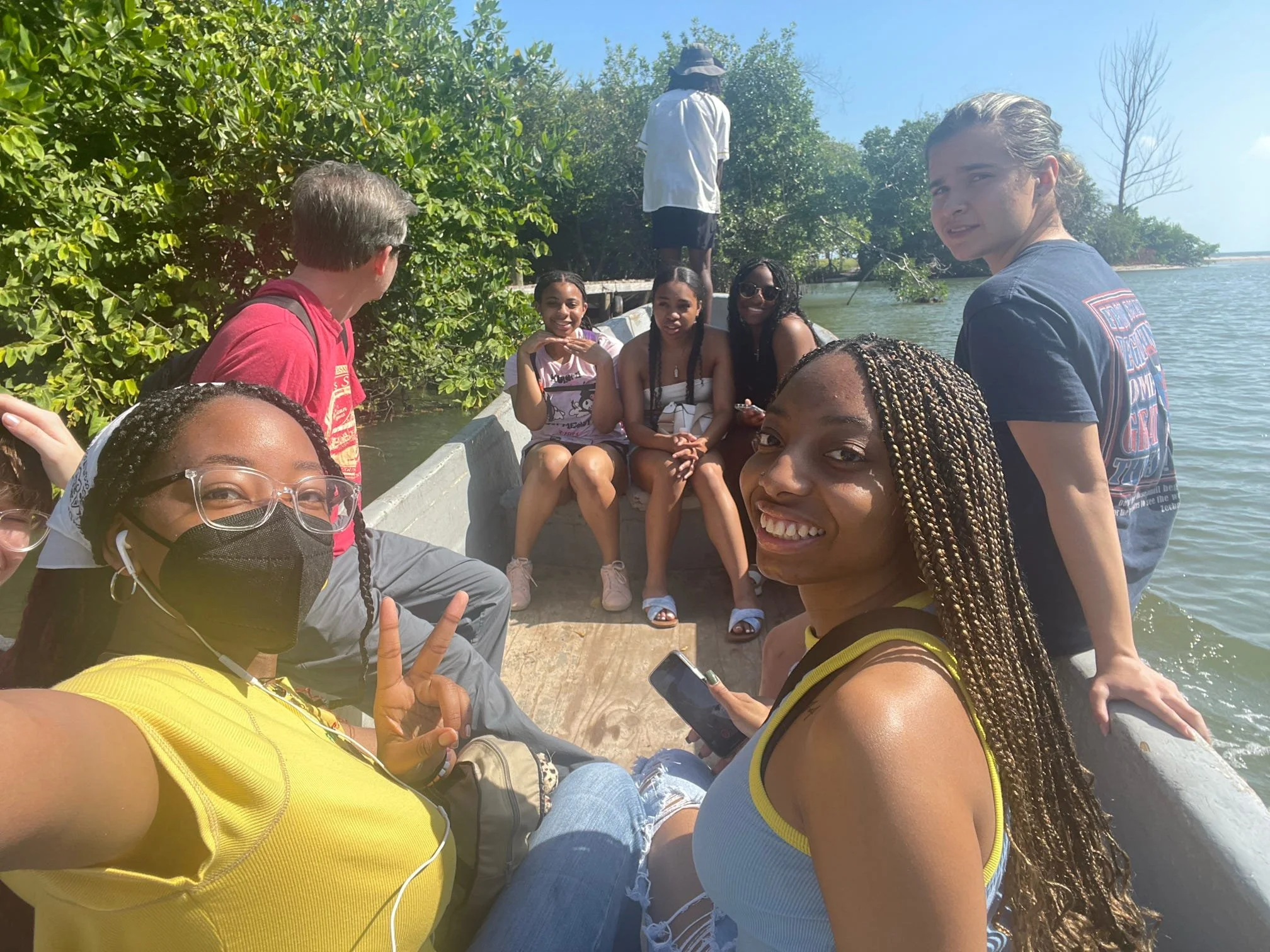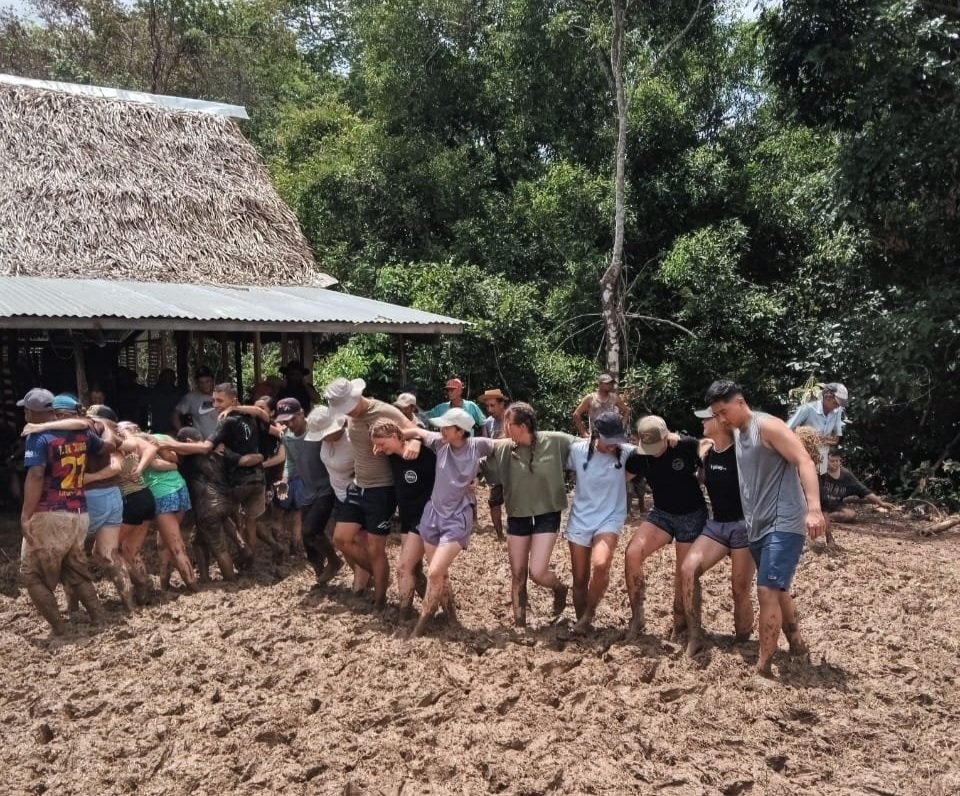What Is a Cultural Exchange Program? Benefits, Types, and Examples
/Popularized in the 1960s, cultural exchange programs have seen students, scholars, and working professionals venture to far-flung destinations with the ultimate aim of exchanging knowledge and building a more collaborative global society.
That much you probably already know — but how does cultural exchange actually play out in practice? How are they organized? And how do they differ from other types of related programs, such as studying abroad, international volunteering, and overseas work placements?
By exploring the role of cultural exchange in today’s globalized world, as well as the many types of cultural exchange programs available, this blog aims to dispel any uncertainties you may have about cultural exchange — and maybe even convince you to enroll in a program yourself.
What Is a Cultural Exchange Program?
Cultural exchange occurs when two people of different cultural backgrounds share ideas, feelings, and values to promote mutual understanding. Cultural exchange programs simply provide the formalized framework for this process to play out.
In practice, cultural exchange programs see two people from different parts of the world visit each other’s country. The aims of these programs include improving foreign language skills and strengthening ties between individuals.
Cultural exchange programs are delivered by a range of providers, including:
Educational institutions, such as your local university
Government departments, such as the U.S. Bureau of Educational and Cultural Affairs
Third-party organizations, such as Learn from Travel
International organizations, such as UNESCO
More so than in other types of international exchange, there is an emphasis on cultural immersion, with individuals actively participating in the everyday activities of host communities to gain an insight into their lived reality and develop intercultural competence.
What are the Different Types of Cultural Exchange Programs?
Students aren’t the only ones to benefit from cultural exchange opportunities. These programs are plentiful, and cover a range of formats and disciplines from the classroom through to the workplace.
1. Student Cultural Exchange Programs
The most popular type of cultural exchange, student cultural exchange programs allow young people to study abroad while living with a host family. The program provider will have a list of partner institutions that students can choose from for their placement.
Students enrolled in cultural exchange programs become active participants in their host culture and build networks with local people. This process of cultural immersion exposes students to new ideas at a formative point in their lives, teaching lessons that go well beyond their studies.
2. Volunteer Cultural Exchange Programs
In keeping with the spirit of cultural exchange, volunteer culture exchange programs allow participants to support host communities through their volunteering efforts. Helping others not only benefits those in greater need, but also encourages personal growth among volunteers.
Volunteer cultural exchange programs are generally offered by third-party providers and international organizations. They support a range of important causes in host communities including childcare, teaching, healthcare, conservation, and construction.
3. Professional Cultural Exchange Programs
Cultural exchange programs are also available to working professionals and scholars. These programs see field experts visit other countries to meet with society leaders and share ideas, providing host communities with the tools to develop socially and economically.
In most cases, professional cultural exchange programs are organized by governments with the aim of exchanging knowledge and strengthening diplomatic relations. These programs often center on the areas of education, research, technology, and the arts.
4. Virtual Cultural Exchange Program
Virtual cultural exchange programs provide a platform for students and professionals to trade knowledge through video calls, web chat, and other forms of communication technology. This format allows multiple parties to participate, providing a global perspective for all involved.
These programs represent a cost-friendly and more convenient alternative to other types of cultural exchange programs. At the same time, virtual programs still provide all the community engagement and project collaboration opportunities that come with traditional programs.
5 Key Benefits of Cultural Exchange Programs
Cultural exchange programs offer a variety of benefits on an individual, community, and international scale. At their core, these programs seek to provide development opportunities for participants and make a positive impact on host communities.
1. Develop soft skills
Working in a new cultural setting develops a long list of soft skills, including adaptability, organization, problem-solving, and self-confidence. The experience serves as a valuable source of learning that participants can draw on well beyond the duration of the program.
Cultural exchange, therefore, is a great way for young people to develop professionally and enhance their career prospects. Any international experience is likely to be looked on favorably by future employers, and could provide an edge in today’s hyper-competitive jobs market.
2. Forge life-long bonds
Bringing participants into the rhythm of everyday community life, cultural exchange programs help you get to know local people on a much deeper level compared to other types of international programs. With such close proximity, strong bonds inevitably form.
It’s not uncommon for cultural exchange participants to maintain close relationships with friends years or even decades after the termination of their placement. Communication technology makes it easy to keep in touch, and you may even find yourself returning to visit before long.
3. Be a force for good
Whether studying, volunteering, or working, cultural exchange programs provide you with the opportunity to make a positive mark on your host community. Acts of kindness won’t be forgotten by your foster family, exchange buddy, and any other person you engage with.
Setting aside any motives of personal gain, we can begin to see cultural exchange for what it really is: a two-way interaction that benefits all parties involved. Your individual efforts may seem insignificant, but play a key part in shaping a more tolerant and kind-hearted global society.
4. Build intercultural competence
Leaving behind one’s own culture — along with its many norms and values — and engaging with people whose experiences are completely different to your own is an eye-opening experience. It can have a very formative impact on personal and professional development.
This process of cultural immersion helps form a worldlier perspective of things, often referred to as intercultural competence. Not only does intercultural competence build empathy and understanding, but it also reveals things about your own culture that were previously concealed.
5. See the world
Cultural exchange programs are a great way to travel — but not in the same vein as a tourist. These experiences go beyond surface-level sightseeing, offering an experiential account of other countries and cultures that enables participants to truly live like a local.
One taste of community-based travel — with its allure of local secrets, unexplored streets, and hearty, homemade meals — will prompt you to reassess the way you engage with other cultures and vow never to travel like a tourist again.
Interested in a Cultural Exchange Program?
Cultural exchange is bigger than the individual. The efforts of providers and participants to promote these programs help make the world a better-connected place for all. And with so many cultural exchange opportunities on offer, you too can play your part in this process!
If you’re a student or college professor interested in arranging a cultural exchange program, contact us today. Our networks run deepest in the Americas, and we’ll work with you to design a fully bespoke, culturally-immersive study program based on your specifications.























